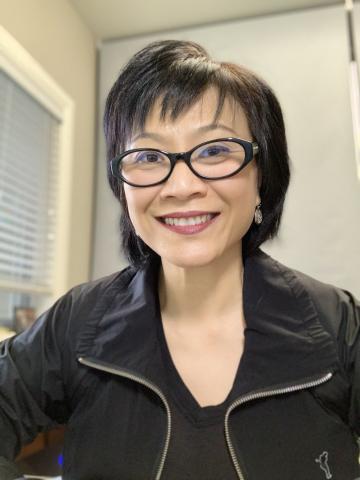I was taught that the more westernized I became, the closer I would be to success.

Learning
I believe no one is born racist. Behaviour is shaped and formed through upbringing, influence, and education, despite where people come from and what race they belong to. I invite you to identify the changes of attitude and perspectives reading my inner story.
I was born in Hong Kong when the city was under British rule. (Hong Kong was a British colony and later a dependent territory of the United Kingdom from 1841 to 1997.) My nationality on my passport was listed as British Subject. I was educated and raised admiring Whiteness and White cultures—because everything British was better, especially the English biscuits, Ovaltine, and Horlicks. I would not have missed any opportunity to learn and speak English. I had a dream of working in an English-speaking office from the time I was in grade school.
My admiration of Whiteness and White cultures became a reason for me to keep a distance from everything too traditionally Chinese. During my teenage years, I was lucky enough to have a Canadian couple willing to sponsor my further education in a small town in Saskatchewan. Without hesitation, I left Hong Kong to this place of 300 people in rural Saskatchewan. I then realized the English language I had learned to speak was not understood by most people in that small town, not only because of my accent but also because of the British terms I had been taught to use. I was not offended despite all the different experiences I had, including being watched and touched by some kids, teased by a few aggressive boys, and worse. I took it as my “price” to pay for success. I was taught that the more westernized I became, the closer I would be to success, so I discriminated against people who were not open to westernized or White cultures. I supported Whiteness and was grateful for the colonial influence.
Later I moved to Regina, the capital city of Saskatchewan, where I spent a decade of my life weaving between the local culture and the lives of immigrants. I learned how Canada supports multiculturalism. I met many immigrants, and it was interesting to learn about their home countries and how they adjusted to the local culture. I was fascinated by the differences and intrigued by the stories and lifestyles within such a small community. The acceptance of diversity in that community led me to look into my own cultural background. I realized my love for White culture was still strong for its liberation and acceptance of possibilities; however, I also learned to discern the inner qualities of individuals who make up a culture.
God has a plan for us all, and some become messengers of God’s Word. My husband and I arrived in Victoria, BC, in 2012. I was surprised to identify a strong sense of White culture that was stronger than in most places I visited. I regularly encountered racist comments and unfair treatment based on bias against Chinese people. Sometime later, I found myself defending newcomers, especially those who spoke English with a heavy accent and those who were new to Canada. All these unfair experiences motivated me to learn more and look deep into the lives of others, and to focus on real connections between people. Most of all, I found myself exploring Chinese history and diversified Chinese culture, and noticing the turns and stops on my own journey. I am a wonderer about lives and cultures.
Faith Reflection
“You shall treat the stranger who sojourns with you as the native among you, and you shall love them as yourself, for you were strangers in the land of Egypt: I am the Lord your God.”
—Leviticus 19:34 (ESV)
No one is born a racist, but it doesn’t mean we have not or will not commit racist acts unintentionally. For some people, our bias is against ourselves and our own culture unintentionally.
Loving your neighbour as yourself requires acceptance and kindness to both our neighbour and ourselves. Accepting and loving myself and my own culture enlightens my appreciation of all cultures and my openness to receiving them.
I believe if we are open to learn, we will learn; with love and kindness, God will lead the way.
Living It Out
Reflect. Accept yourself and others as they are. Make friends with someone in your congregation who looks different from you, who sits alone; invite them to share their stories, and you share yours. If you are comfortable, talk about racism together. The more you listen to and share stories, the more you will understand your community and develop an open mind to understand that no one is a foreigner.
—Julie Ng (she/her) was born in Hong Kong and moved to rural Saskatchewan during her teenage years. She became an active volunteer in the multicultural community in Regina and moved on to the international stage for her professional dream before residing in Victoria, BC, where she decided to serve with her professional skills in marketing and strategic planning. She initiated an intercultural ministry program at a local united church promoting integration between newcomers and the local communities. Julie is passionate about spreading the love of God and practising Jesus’ teaching through her insights on human behaviour and development.